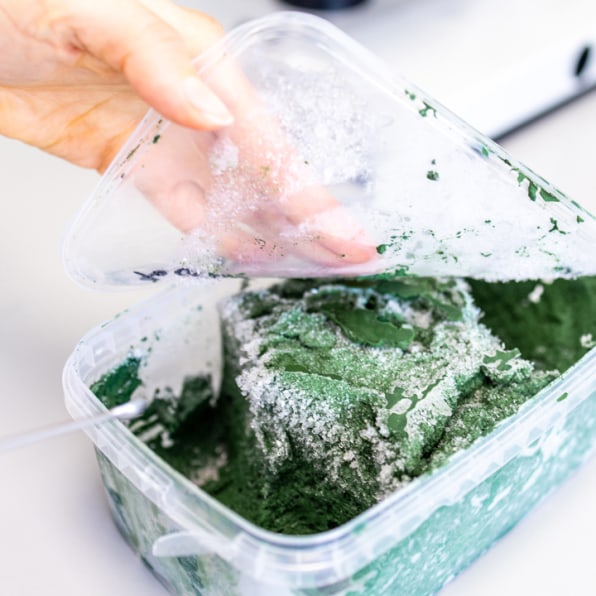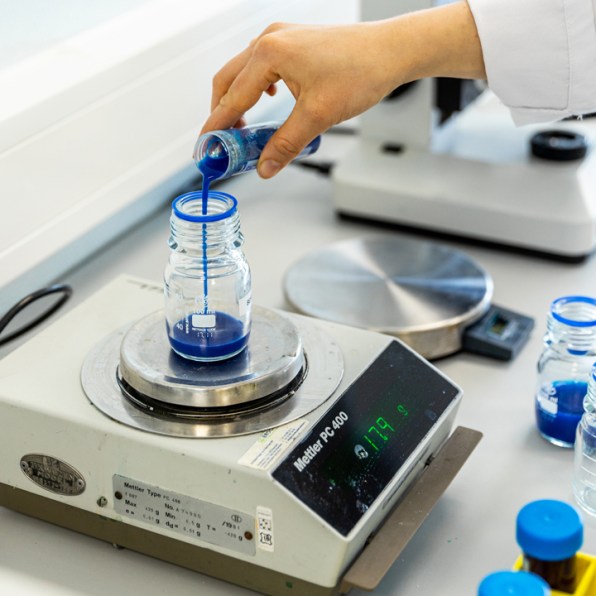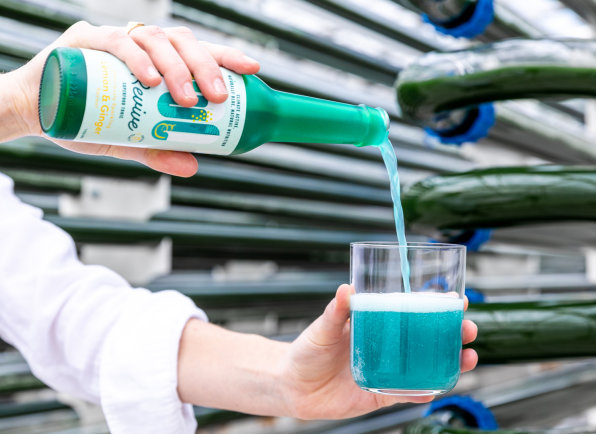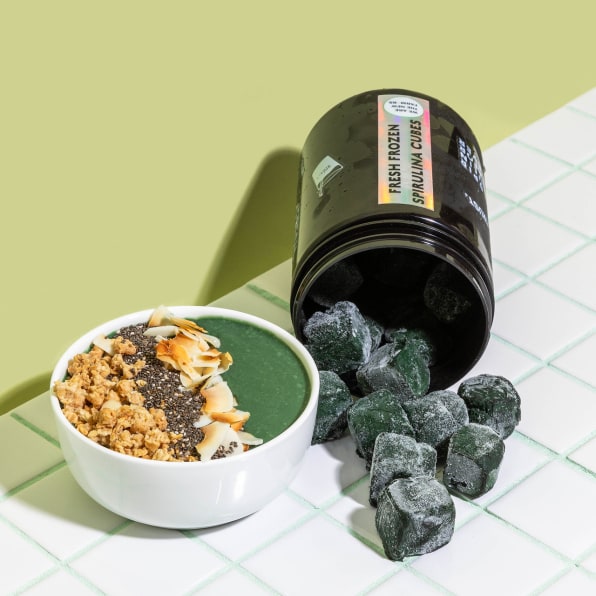[ad_1]
The vivid blue color of a new brand of Dutch soda doesn’t come from food coloring: The startup making the product, called Ful, makes the drink with spirulina, a blue-green algae that gives the soda more of a nutritional punch than the standard carbonated beverage. The company wants to use the product to make algae a more popular ingredient in order to help shrink the carbon footprint of the food system.
The founders, who met as students at the Singapore campus of the business school INSEAD (a French acronym that translates to European Institute of Business Administration), spent months exploring ways to speed up the global shift to net zero emissions before settling on blue-green microalgae. “What I think particularly caught our imagination was how efficient it is at transforming CO2 into nutrients and oxygen,” says Julia Streuli, one of Ful’s three cofounders.

Per kilogram of protein produced, beef has a carbon footprint of around 500 kilograms; soy has a carbon footprint of around 20 kilograms. But algae quickly takes up CO2 as it grows; and in a lifecycle analysis, the startup calculated that in its own production process—which uses CO2 captured from industry—its spirulina takes in more carbon than the total process emits, giving a carbon footprint of negative 1.5 kilograms. Algae also doesn’t need arable land to grow and doesn’t require pesticides, fertilizer, or the huge amounts of fresh water used to produce most food.

Beyond protein, it’s a source of nutrients like iron, vitamin C, magnesium, and antioxidants like chlorophyll, all of which can be found in the soda, which the company hopes will appeal to a wellness-focused clientele. Still, it isn’t yet widely used outside the supplement aisle at health food stores. “Very few people were focusing on the demand-gen side—how you make this product appealing to final consumers,” Streuli says. The flavor and smell can be unappetizing. It also doesn’t look great. “If you try to pasteurize it, which a lot of foods need for longer shelf life, the green color turns to very unappetizing brown,” she says.

Just before graduation, the founders won a business plan competition for their concept of a new spirulina-based brand. “It basically gave us enough money to justify turning down our corporate jobs,” Streuli says, and the team moved to the Netherlands to begin working with food scientists to deal with the challenges that they saw holding the ingredient back, and developed a patented new way to process the algae to extract the best-tasting parts. Their new ingredient “has a little bit of a saltiness, but it doesn’t have the fishy off-taste of spirulina,” she says. “It’s quite pleasant, and it pairs very well with other flavors.”

The extraction process also makes it a particularly bright shade of turquoise, which comes from the chlorophyll in the algae. The company decided to embrace the odd color, rather than trying to hide it. “If you’re describing that color to a friend in five years, I want you to say, ‘Oh, that’s Ful colored,’” Streuli says. (The ingredient also can be used in food; it’s not clear yet whether consumers who might be willing to drink a Gatorade-like soda will also want to eat blue-tinged granola bars.)

The first limited runs of the new soda, in flavors like peach and lemon ginger, were made in a Dutch brewery. Because breweries also produce food-grade CO2, the bioreactors growing the algae also could eventually capture that CO2 to feed the algae. “Then you have this really wonderful closed-loop system that could be highly localized, but also scalable all over the world, using existing infrastructure,” she says. Right now, most algae is grown with bicarbonate rather than captured CO2, but the company wants to use a process with the lowest emissions possible. The team is also working on details like packaging; the first production runs were sold in the glass bottles used by the brewery, but the company is switching to aluminum cans to lower its footprint further. And a future product, in powdered form, will have even more minimal packaging.

For now, the soda is only available in Europe and the U.K., but the brand hopes to expand to the U.S. later this year. Other startups are also emerging in the space, like We Are The New Farmers, a company that makes frozen spirulina cubes for smoothies from algae grown in an indoor farm in Brooklyn.
[ad_2]
Source link

